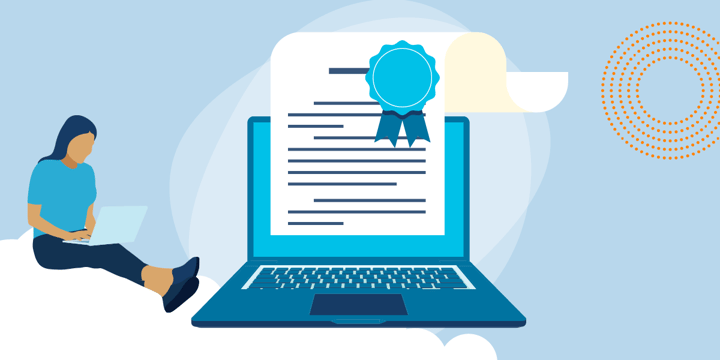Grant writing and proposal-development skills can be learned and developed over years of practice and enhancement. In this two-part blog series, I will share some ways to improve your proposal-writing skills for free.
In part one, we will focus on how reading successful proposals can be a powerful tool to hone your skills. Part two will discuss finding and organizing your proposal-writing resources so you have easy access to the information you need to craft compelling proposals.

Reading successful grant proposals has helped me improve my storytelling skills. I encourage you to read through proposals to find ways to tell your organization’s story, study what makes proposals strong, and discover your own writing voice. It doesn’t matter if the topics in the sample applications are relevant to your organization or project. You’re just looking for the key elements that make the applications strong so you can apply them to your own writing.
Finding Successful Proposals
First, how can you find successful proposals? There are several different ways to secure winning grant proposals:
- Your personal network: Ask your peers if you can read their successful proposals. Of course, some individuals will answer with a firm, "no way." But you will find others who are more than willing to share. With the first grant proposal I wrote, a colleague let me read her copy of a similar grant application, and it was immensely helpful in learning how to answer questions, the amount of detail to provide, etc. It was a game changer in how I wrote the application.
- Freedom of Information Act: If you are exploring the federal grants arena, you can request copies of successful proposals through the Freedom of Information Act portal. Find the federal agency that administers the grant program you are interested in and request a copy of a previously awarded grant.
- Google: You would be surprised at what a Google search will yield. There are a lot of organizations, funders, and other networks that publish examples of successful proposals.
- GrantStation: Every other year, GrantStation and the Grant Professionals Association sponsor the Winning Grant Proposal Competition. Nonprofit organizations compete for prizes by submitting a grant proposal that previously won an award. A team of external judges selects the "best of the best," and those proposals are available for members to review on our website.
Spot the Keys to Success
Second, dissect the applications for qualities that make them strong. Notice some elements that are likely part of these successful applications:
- All questions are answered: Each application is unique. In reviewing the application, you will see that all the questions the funder asked are completely answered in the application.
- Instructions were followed: Each grantmaker has their own format and guidelines for funding. Successful applicants follow these instructions to the letter. It is important to follow the terminology, headings, and formats requested by the funder because it helps the reviewer easily score your application. Reviewers usually have a score sheet that follows the application instructions. If you write your application following the instructions, the reviewer can easily find the answer to each question.
- There is a great match between the funder’s area of interest and the project: Grantmakers like to see that an organization seeking funds has a track record and a detailed plan to help the target population.
- Information is detailed and specific: Successful applications provide a lot of detailed information throughout the narrative to communicate all aspects of the project. For example, don’t just say you will "recruit participants." Include all the methods you will use so the funder understands exactly how you will recruit participants.
- The application is written in simple language: It is important to realize that most grant reviewers do not "live" in your world or sector. Treat each application like a blank slate to educate the reviewer on the background of your organization, the problem you are addressing, what you are trying to achieve, how you will implement your project, and how you will evaluate the project. Use easy-to-read words, avoid jargon, and spell out all acronyms.
- Format and layout: Another element I always look at is the layout and design of the application. With more funders using online applications, this is not always possible. But I enjoy seeing visuals, how diagrams and charts are used to tell the story, and overall formatting that made the application easy to read.
Finding the Keys to Success
Each proposal should be unique, but learning from others is one of the best ways to find success in your own grant applications. Enjoy this activity! It is fun to review great proposals — use them to enhance your skills and win more grants.
Additional Resources
- Get TechSoup Courses' beginner's guide to What Grant Writing and Management Is All About.
- Take a look at Your Expert Guide to Grants Research.
- Read more about Getting the Grant: A Guide to Your First Grant Presentation.
- See a TechSoup webinar with Alice Ruhnke: Be a Standout! Ten Tips to Write Winning Grant Proposals.
Top photo: Shutterstock







